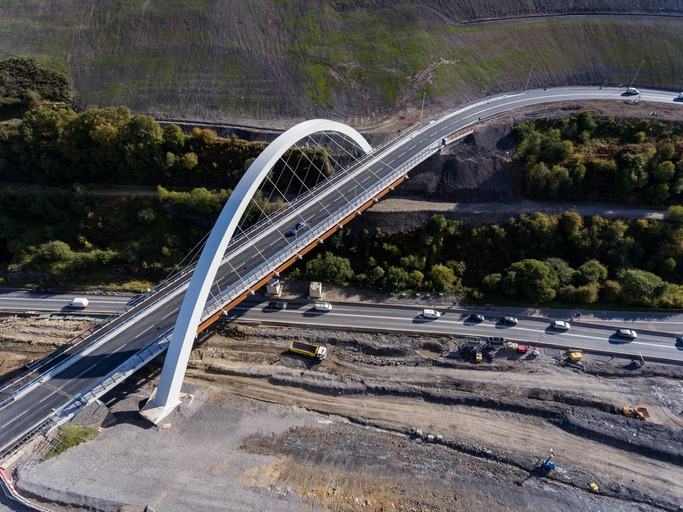Wales to pause new road-building schemes as it tackles emissions
02 July 2021

The Welsh government is to suspend all new road projects, as it looks to improve air quality in the country. The plan is to divert funding to more sustainable transport plans.
Since 1990, Welsh emissions have fallen by 31%. However, to help facilitate the rapid reduction required for the future, the country will suspend all new road projects and set up an independent review council to establish the feasibility of building new routes.
‘Understanding the data in relation to transport gives us the headroom to make choices, and, as the data and the science change, the choices we have to make,’ deputy minister for climate change, Lee Waters, told the Welsh Senate. ‘We must use the headroom we have wisely if we are to meet our climate change targets. To this end, we are announcing a pause on all new road schemes while we review our existing commitments.
‘Officials are in the final stages of establishing a roads review panel, which will include some of the UK’s leading experts on transport and climate change. The panel will consider setting tests for when new roads are the right solutions for transport problems, in line with the new Wales transport strategy. And I want the review to consider how we can shift spending towards better maintaining our existing roads, rather than building new ones, as was recommended by the cross-party Economy, Infrastructure and Skills Committee.’
Driving reduction
Waters wants to ensure a shift away from spending government money on projects that encourage people to drive, investing instead in ‘real alternatives that give people a meaningful choice.’
The Wales New Transport Strategy, published earlier this year, included a modal shift target for the first time. This requires the country to aim for 45% of journeys to be by sustainable forms of transport by 2045, up from 32% currently.
‘This year we will be spending more than any other part of the UK per head on active travel investment to encourage people to walk or cycle for local journeys,’ Waters stated. ‘Two out of three journeys in Wales are under five miles in length. With the right investment, and with encouragement, there’s huge potential to get most people using sustainable transport for most everyday journeys—not all journeys, not all people, but the majority.’
A large amount of Wales is rural, with larger facilities some distance away. It is unclear how the push for sustainable transport will affect smaller communities, but the government plans to invest in its bus networks, using money currently set aside for roads projects.
The government also aims to ‘bring services to the people’ in order to reduce the need to travel. It will do this by supporting remote working, helping to adopt a ‘town centre first’ approach, building new homes and offices close to public-transport routes, and ensuring a join-up approach to infrastructure investment decisions.
Reasons for optimism
The news was well received by Sophie Howe, future generations commissioner for Wales. In her report published last year, she called for the government to strop prioritising investment in building new roads and to move away from traditional transport planning. Instead, she suggested the focus should be turned to a combination of alternative solutions to the climate emergency.
‘Wales has for too long been prioritising cars over people,’ she commented. ‘I am hopeful that this new decision signals more of the radical action that will be taken by the Welsh Government’s new Climate Change Ministry for the sake of our long-term health.
‘An over-reliance on the car has led to increased noise, poorer air quality, time wasted in traffic and an unacceptable burden on communities living near our most congested roads, often in areas where fewer people drive a car.
‘As we move away from building new roads, Welsh Government has to work quickly to improve alternatives – listening to communities and making it easier for more people to make public transport and active travel their first choice.’
In order to keep temperature rises within safe limits during the next 10 years, the UK needs to more than double all the cuts in emissions that it has managed in the last 30 years. To hit its 2050 targets, the UK Climate Change Committee stated that carbon emissions need to reduce in the next decade by 63% across all sectors and fall by 89% by 2040. On its current trajectory, the UK will not achieve net-zero until 2090.